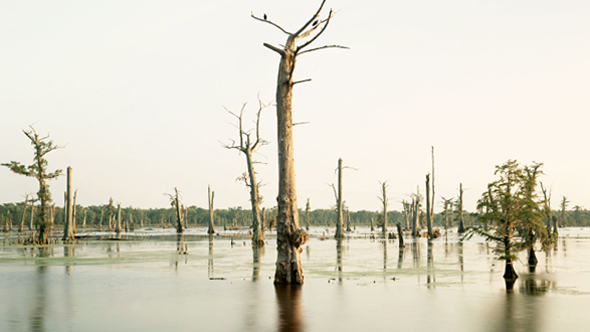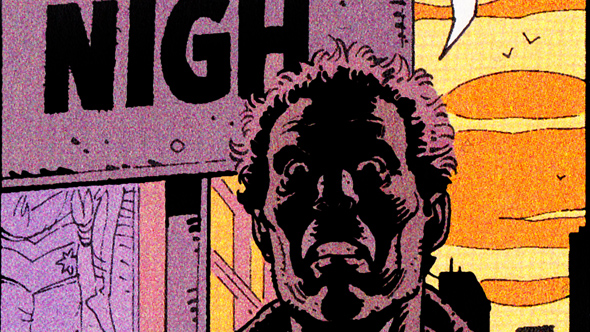
The evidence of climate change doesn’t only rest in intricate atmospheric models, but in the material world around us: rising temperatures and sea levels, increased ocean acidification, desertification, etc. All impact on the basic necessities of life: land, food, water, shelter. These effects are typically experienced in the poorest regions of the world or among the poorest populations of rich regions.
Nobody realistically believes that the IPCC’s warming target of 2°C to avoid ‘dangerous climate change’ will be met. Even institutions like the World Bank believe a 4-6°C increase before the century’s end is already unavoidable. As certain changes become “locked-in” and feedback-loops take hold, the future becomes increasingly unpredictable. The effects of global warming will become progressively more devastating. Coastal regions will continue to disappear, more crops will fail, there will be a higher intensity and frequency of major weather events – all resulting in further conflict and mass migrations.
Capital’s demand for continuous growth and accumulation is incompatible with continued human habitation on Earth. Global and state institutions have proven themselves incapable of reversing the warming (global emissions have risen 61% since 1990), opting for “solutions” from within the same controlling logic that created the problem in the first place. The end of humanity seems distant to a political economy whose horizon is the next quarterly statement. The desire to permanently postpone the future is revealed in places like California, where the irrigated deserts and watered lawns of Hollywood produce succulent fruit and perversely exhilarating moving images of collapsing monuments and plucky survivors so pervasive they have shaped the popular imagination of what The End will look like. Meanwhile, the Colorado River runs dry and the reservoirs empty.
It is also crucial to recognise that apocalypses are relative; human cultures, religions and political forms have continually faced their own annihilation. A world was destroyed when racism, religious bigotry and capitalist expansion wiped numerous indigenous American tribes, their cultures and histories off the face of the Earth. Today, cultures and populations continue to struggle for survival at the mercy of particular social forces so totalising and cataclysmic that they now threaten to destroy all worlds. Warning signs can already be seen within existing structures and social relations. Anti-immigrant, eugenicist and population control ideologies become further cemented in political and media culture while greater extremes of inequality and ever more repressive and securitised state apparatus become both by-products and “solutions”. It isn’t acceptable for members of the most oppressive groups to be considered the legitimate source of alarm of this latest wave of annihilation over and above all others (that didn’t threaten them). And it’s positively offensive for climate social movements and NGOs to attempt to flatten out racial and class struggles for the “greater good of humanity”.
The Apocalypse we are faced with now emerges from the very existence of class society. All struggle against this social arrangement, therefore, itself becomes ‘the environmental movement’. Anti-fracking and anti-tar sands movements, led by indigenous tribes and local communities, remain imperative. But equally central is continuing, bolstering and escalating struggles against prisons, racism, gentrification, state violence.
Overlapping endings leave ruins in their wake, which many communities appear to be able to sense the outlines of, attempting to build from the remains. The chaos left after disasters often allow for communities to reassert an almost innate sense of communism, where mutual aid replaces the centralised provision of “state aid”. We only need look to the recent occupation on the Carpenter’s Estate in East London to see this in action: where Newham Council saw only vacant remains on a piece of prime real estate, Focus E15 Mums saw instead homes – offering us a hopeful glimpse of a world ready to be rebuilt from the ruins.









